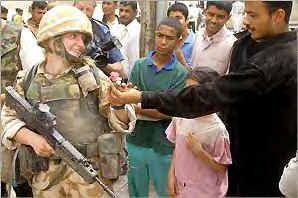

Nurse Penny
By Ernest L. Webb
The period from 1967 to 1968 was a difficult time in Vietnam, especially during the communist Tet Offensive in early 1968, when American soldiers suffered their heaviest casualties of the war. It was during this time that a young U.S. Army field hospital at Tan Son Nhut airbase. Like most nurses, she worked a multitude of assignments, but mostly she worked in the critical care, or triage, unit.
Triage duty is an emotionally tough assignment: determining who gets when in terms of treatment and in what priority. One group is made up of those soldiers whose wounds are slight and can wait for medical care. They are set aside, to wait until care is given to the serious casualties. The second category is the toughest: those whose wounds are so severe that they cannot be saved. They are given something to deaden their pain and then set aside to die. In the final group are those whose wounds are serious, but who have a chance at survival. These cases are given the highest priority, and every effort is made immediately to save their lives.
The doctors and nurses who have served this country in all of its wars have always tried to limit the number of Americans they must place into the second category. It is hard to look at your own people, accept the fact that you can no longer help them and then watch them die. I have observed doctors totally break down over the helplessness they feel when they cannot save some young soldier. In Vietnam, knowing they had tremendous medical resources, the doctors and nurses were even more reluctant to place anyone in the second category.
As a result, they made heroic efforts to save even hopeless cases. Many were flown immediately to advanced medical facilities in Japan. Most, if they could be kept alive for this short flight, had a good chance of making it.
Our soldiers knew of this dedication and had great faith in our doctors and nurses. Yet combat veterans, even young boys, learn early on to understand the signs of death. People with life-threatening wounds knew their chances were extremely slim -- what kept them alive was hope. Penny understood this, holding their hands as she helped load them onto the hospital-bound aircraft.
Many of them looked her in the eye and asked her, "Am I gonna make it?"
Penny would respond, "Sure, you'll make it. My name is Penny, and I'm going to give you this penny to let you know you will be okay. And, when you get well, I want you to promise to get in touch and give me back my penny."
She then gave each of them a shiny American penny. Many of them did not make it, but I know that her act made their passing less painful.
In 1997, twenty-nine years after Penny left Vietnam, she received a phone call from a stranger.
"Were you ever an Army nurse?" the stranger asked.
"Yes," Penny replied.
"Were you in Vietnam during the Tet Offensive?" he asked.
"Yes," she replied.
"Well, I have a penny for you," he said. "I want to come give it to you. And I also want you to meet my wife and two girls. I have them because you gave me the hope and will to live."
As you can imagine, it was a tear-filled, joyous reunion.
Previous Story Back to Calendar Next Story